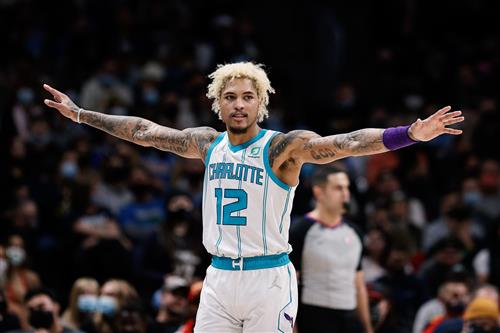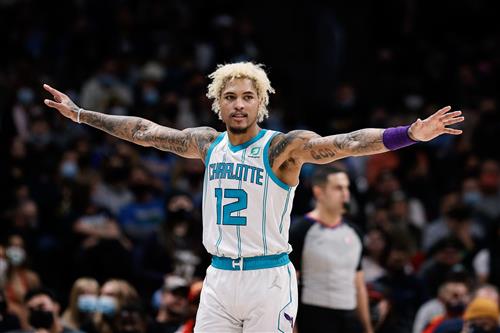
Though this past year ranked among the longest decades in history, we have, rumor has it, officially trudged into 2022. Congratulations. Let’s now ring in the new year like we always do: with another round of NBA trade speculation.
Demanding teams ship out anyone is over the top. This is instead an overview of which player each squad should be trying or remains most obligated to shop in 2022.
Just like the 2021 iteration of this exercise, we are talking about the entire calendar year. Many names will be selected with the Feb. 10 trade deadline in mind, but certain choices tilt toward summer and beginning-of-next-season propositions.
Every decision aims to strike a realistic balance. Bigger-name inclusions aren’t taboo, even if they’re not dominating the rumor mill, but we won’t go against the real-life intentions of franchises beyond reason.
Some teams needn’t approach the trade market with any urgency right now. These instances will be denoted and default to the player they’re most likely to or should use as bait in talks. Because, again, we’re not only talking about right now but over the offseason and into the 2022-23 campaign.
Finally, and most importantly, this entire exercise rests on the (rickety) assumption the league will operate with a semblance of normalcy by the deadline. Selections and observations are made purely for basketball purposes and not meant to downplay or dismiss any hardships players and teams may currently be navigating during the Association’s COVID-19 surge.
Atlanta Hawks: Danilo Gallinari
Others will urge the Atlanta Hawks to shop De’Andre Hunter or Cam Reddish. Both are extension-eligible this summer, and they already signed Kevin Huerter to a four-year, $65 million deal that kicks in next season.
That logjam isn’t enough to mandate Atlanta trade a younger wing. For starters, it’s not actually a logjam. Having too many quality wings—all of whom can play at the same time—isn’t a thing. It’s a different story if the Hawks don’t want to pay all three. Not one of them, though, is a throwaway asset.
Yes, Atlanta will have to surrender one if it strikes a consolidation trade. However, it’ll take a larger salary to anchor any blockbuster, which is where Danilo Gallinari comes in.
Contracts promising cap relief don’t always belong to players capable of making a positive impact. Gallinari still can. His offense translates both on and off the ball, he can still put his head down and draw contact, and this is the fourth consecutive season in which he’s drained more than 40 percent of his threes.
Make no mistake—the Hawks can use him, but he has a $5 million partial guarantee against a $21.5 million price point next year, and they’ve tied up $40 million-plus per season in the John Collins-Clint Capela front line.
Atlanta might plan to waive Gallinari after this year anyway. Even if it doesn’t, attaching his salary to picks and youngsters is its most likely path to a glittery acquisition that doesn’t entail making Collins available.
Boston Celtics: Dennis Schroder
There is a larger conversation to be had about the Boston Celtics’ best trade-deadline approach. They are on the precipice of, if not outright in, seller territory.
This shouldn’t be considered inflammatory. Below .500, with an offense that doesn’t put consistent pressure on the rim and is 29th in effective field-goal percentage on wide-open jumpers, the Celtics are among this season’s biggest letdowns. Team president Brad Stevens should be contemplating the bigger picture and gauging the market value of everyone except Jaylen Brown and Jayson Tatum.
Dennis Schroder, of course, is a must-shop no matter what the Celtics do. He fell into their lap over the summer after his free-agent market imploded, and they don’t have the financial flexibility to keep him beyond this season.
Boston can offer Schroder 120 percent of the mini mid-level exception he’s earning now before needing cap space or the larger MLE to retain him. The Celtics don’t have a prayer of carving out the former, and he isn’t sticking around for the sub-$7.1 million they can sling using his non-Bird rights.
Dangling the bigger $10.1 million MLE might get the job done, but they must first waive Al Horford for $14.5 million if they’re going to have enough wiggle room under the tax to access it.
Moral of the story: Schroder is a goner after this year. Boston should see what an aggressive buyer will pony up to rent him for part of the season.
